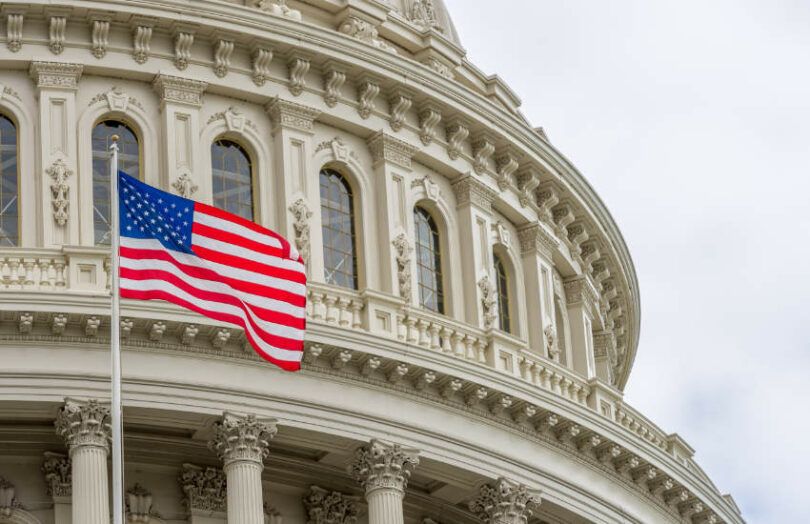US Congress Passes Stablecoin Bill ‘Genius Act’; Trump Expected to Sign

After years of lobbying and millions spent on campaign donations, crypto finally got what it wanted.
The U.S. House of Representatives on Thursday passed the Genius Act, a bill that lays out a federal framework for U.S.-dollar-backed stablecoins. The bill now heads to President Donald Trump, who’s expected to sign it into law, marking a huge win for the crypto industry’s long-running push for regulatory clarity.
This moment has been a long time coming. Digital asset firms have spent years urging lawmakers to set clearer ground rules for how crypto assets—particularly stablecoins—should be treated. Last year alone, the sector poured over $119 million into electing pro-crypto candidates. On Thursday, that investment began to pay off.
Genius Act Passes: U.S. Moves Closer to Federal Stablecoin Regulation
The Genius Act passed with bipartisan support, a rare feat on Capitol Hill these days. Dozens of Democrats joined Republicans to push the bill through. The legislation would require stablecoin issuers to back their tokens with liquid reserves like U.S. dollars or short-term Treasury bills and disclose the makeup of those reserves every month.
Stablecoins are a kind of cryptocurrency built to hold a steady value—usually $1—so traders can move money between tokens without exiting the crypto ecosystem. But as their use has grown, so have concerns about whether they’re actually backed by anything. The Genius Act aims to address that.
In a parallel move, the House also passed another crypto-related bill, the Clarity Act, which would help define a broader regulatory framework for digital assets. That one now moves to the Senate for consideration.
It’s a significant shift for Washington, where crypto legislation has been stalled for years. A similar stablecoin bill passed the House last year but went nowhere in the Senate, which was then controlled by Democrats.
Trump has been more receptive to the industry, partly because of his own personal ties. He’s spent the past year courting donations from crypto firms and has launched a meme coin called $TRUMP and a crypto venture called World Liberty Financial, which is partially owned by him.
Just last week, Truth Social—the social media platform owned by Trump Media & Technology Group—filed to launch the “Truth Social Crypto Blue Chip ETF.” The fund would offer investors exposure to top cryptocurrencies like Bitcoin, Ethereum, and Solana. The timing is no accident. As digital assets surge and regulatory momentum builds, public companies are racing to stake their claim in crypto.
Democrats have pushed back, questioning Trump’s crypto dealings and raising concerns over conflicts of interest. But the White House insists there are none, saying Trump’s assets are held in a trust managed by his children.
For now, the crypto industry is celebrating. A federal framework for stablecoins would give companies clearer rules to operate and potentially pave the way for wider adoption. But it also brings more scrutiny—and a closer spotlight on Trump’s growing involvement in the space.
The Risks of Stablecoins
The bill is a big win for everyone, including crypto startups. But while the industry celebrates, stablecoins aren’t as “stable” as they sound. They come with hidden risks that we broke down in our June piece. From redemption risk to reserve opacity to regulatory blind spots, the risks are still very real. And this time, the stakes might be higher.

Here’s a YouTube video from CNBC about the passage of the bill.




